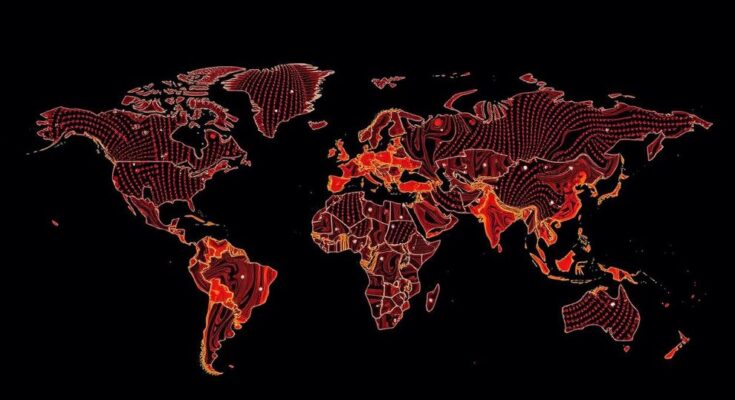This article discusses revelations made during a webinar hosted by EG Justice regarding the billions of dollars in payments made by American oil and mining companies to various governments, emphasizing the lack of correlation between resource wealth and the average citizen’s welfare in places like Equatorial Guinea. The disclosures highlight substantial tax contributions overseas compared to domestic payments, raising concerns about governance, corruption, and equitable financial practices within the extractive industries.
In a recent webinar hosted by EG Justice, the devastating impact of oil wealth in Equatorial Guinea was highlighted by executive director Tutu Alicante, who recounted personal tragedies due to inadequate healthcare despite the country’s resource-rich status. The discussion focused on newly disclosed payment reports from American oil and mining companies, revealing the vast monetary transactions made to global governments, including those of the U.S. These disclosures originate from a mandate of the Dodd-Frank Act, aimed at increasing transparency and combating corruption. The analyses unveiled billions in taxes, royalties, and other payments, with ExxonMobil and Chevron being among the leading contributors. For instance, ExxonMobil disclosed a payment of $189.2 million to Equatorial Guinea; however, this was a fraction of the corporation’s total of $32 billion paid across 28 nations. Such discrepancies have raised concerns about equitable governance and the distribution of resource wealth. Both companies have been pointed out for paying significantly higher taxes abroad compared to what they contribute domestically in the U.S., sparking concern over whether American policy is disadvantaged in negotiations with these corporations. Although Exxon and Chevron maintain that tax differences arise from varying regulations and ownership structures, advocacy groups remain skeptical. Critics, including representatives from Oxfam America and the Financial Accountability and Corporate Transparency Coalition, emphasize the necessity for detailed disclosures to enhance the scrutiny of corporate payments. Furthermore, they argue that while international agreements seek to phase out fossil fuels, monitoring these financial flows is crucial in holding governments accountable. As further discussions on fossil fuel tax policies ensue, stakeholders are urged to review the implications of these financial revelations not only for domestic policies but also for global extractive industries. The struggle for transparency within this sector reflects broader societal concerns about wealth distribution and corporate governance. The intricate interplay between resource wealth and the welfare of societies illustrates the urgent need for reforms to ensure that extractive industries benefit the populace rather than a select few. The information will be especially pertinent as policy debates unfold regarding fossil fuel tax benefits in the context of the proposed reforms by the Biden administration, aimed at reconciling corporate contributions to public finances.
The context of this article revolves around the disparity often observed between the immense profits generated by oil and mining companies and the socioeconomic conditions in resource-rich nations. Specifically, Equatorial Guinea presents a case study of how significant natural resource wealth has not translated into improved living standards for its citizens. The discussion is framed by the recent requirement for transparency in payments made by extractive companies to governments under the Dodd-Frank Act, which seeks to illuminate the flow of money in this sector and the implications for corruption.
In conclusion, the reports reveal a stark contrast in tax contributions made by oil companies like ExxonMobil and Chevron to various governments, raising critical questions about corporate responsibility and the effectiveness of governance in resource-rich nations. While attempts to increase transparency have been made, the findings underscore the necessity for ongoing vigilance and reform in the oil and mining sectors, particularly as discussions on taxation and corporate regulation evolve.
Original Source: insideclimatenews.org




